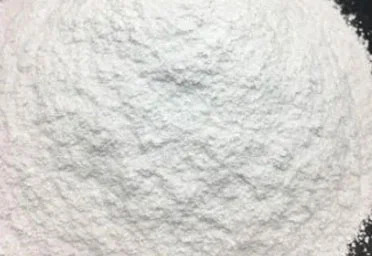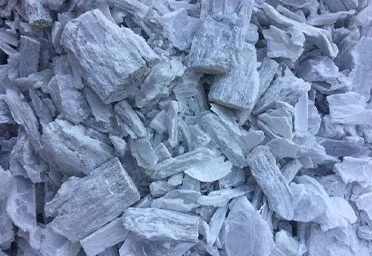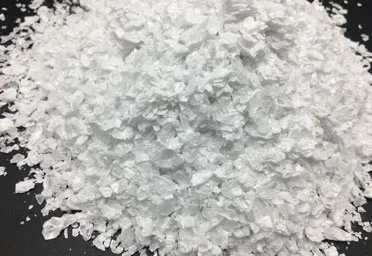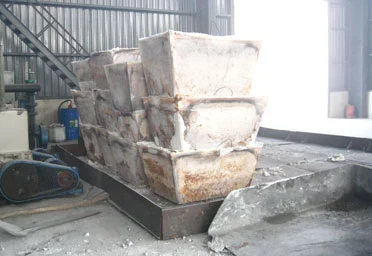Anhydrous magnesium chloride is a by-product of sponge titanium. Magnesium metal and titanium tetrachloride undergo a reduction reaction in a closed container at high temperature to generate anhydrous MgCl₂ liquid. After being poured into a steel container and cooled for 24 hours, anhydrous magnesium chloride blocks are formed, which are packaged and delivered from the factory.
According to the requirements of customers, this type of inorganic salts can be processed into different shapes and sizes.




Anhydrous magnesium chloride is a type of inorganic salts, refers to magnesium chloride that is devoid of water molecules, meaning it does not contain any water in its crystal structure. Magnesium chloride itself is a chemical compound with the formula MgCl₂, and it can exist in various forms depending on the presence of water molecules. The term ''anhydrous'' specifically indicates that the magnesium chloride is in a state without water.
Magnesium chloride can exist in different hydrate forms, where water molecules are associated with the magnesium chloride crystals. The most common hydrate forms include hexahydrate (MgCl₂·6H₂O) and the less common but stable form, magnesium chloride hexahydrate bisulfate (MgCl₂·6H₂O·2H₂SO₄).
Anhydrous magnesium chloride is typically obtained by removing water from these hydrate forms through processes such as heating or dehydration. The resulting anhydrous form is often used in various industrial applications, including the production of magnesium metal, as a de-icing agent, and in certain chemical processes where the presence of water needs to be minimized. The absence of water in anhydrous MgCl₂ makes it more suitable for applications where water content could be detrimental or where the specific properties of the anhydrous form are required.
Magnesium chloride exists in two principal forms: anhydrous and hexahydrate, each with distinct characteristics and applications. Anhydrous magnesium chloride lacks water molecules in its crystal structure, presenting as a white, crystalline solid. Anhydrous MgCl₂ boasts a higher concentration of magnesium ions by weight compared to the hexahydrate counterpart. Due to its lower water content, anhydrous magnesium chloride finds utility in industrial processes requiring minimal water presence, such as chemical synthesis and certain manufacturing applications. Its purity and stability make it favored in specialized industries where precise control over moisture content is essential.
On the other hand, magnesium chloride hexahydrate contains six water molecules per magnesium chloride molecule, presenting as colorless to white crystals or flakes. This hydrated form is more common and commercially accessible compared to anhydrous magnesium chloride. Hexahydrate magnesium chloride serves prominently as a deicing agent for roads and sidewalks during winter due to its ability to depress the freezing point of water. Beyond deicing, its applications span pharmaceuticals, nutritional supplements, and various industrial processes where water content is less critical. The hexahydrate form's versatility and widespread availability make it a staple in both consumer and industrial settings, offering a balance between performance and cost-effectiveness.
